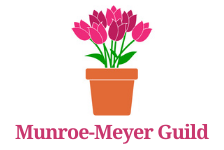Munroe-Meyer Guild
A supporting board of the Munroe-Meyer Institute
The mission of the Munroe-Meyer Guild is to improve the quality of life for persons with disabilities through fundraising for the UNMC Munroe-Meyer Institute.
Over the past 50-plus years, the major fundraiser for this supporting board has been the annual Munroe-Meyer Guild Garden Walk, held the second Sunday in June. Proceeds from that event and others total more than $1.1 million over the past five decades. Funds generated through the Garden Walk are used to help fund programs and support innovative projects and training at the institute that might otherwise go unfulfilled. A call for grant applications is announced at the end of the year.
The Munroe-Meyer Guild has awarded their 2024 grants to the Munroe-Meyer Institute, supporting the following projects.
“Inclusive Trauma Care: A Treatment Program for youth with intellectual of developmental disabilities” (grantees Hanna Grandgenett, PhD and Allison Morton, PhD). This program would create an inclusive treatment for youth with intellectual and developmental disabilities exposed to traumatic events. Treatment would be piloted on youth and families at MMI before being evaluated for potential to reduce key symptoms. It would then be disseminated to MMI trainees and providers.
“A Rising Tide Rises All Ships: Empowering Families to Increase Wellbeing of Youth with Developmental Disabilities” (grantees Rachel Schumacher, PhD and Kaitlyn Young, PhD). This team will pilot a group-based treatment approach to address child problem behaviors within the context of improving parental well-being. The program would empower parents and reduce stress associated with raising children with intellectual and developmental disabilities while enhancing the child’s adaptive and social-emotional skills.
“AAC Life Transitions Lab” (grantee Susan Fager, PhD). The project would develop a state-of-the-art lab to support translation of augmentative and alternative communication research to clinical practice. AAC technology in the lab would support critical life transitions — emerging communication, literacy, employment and physical access abilities — for individuals with complex communication needs.


